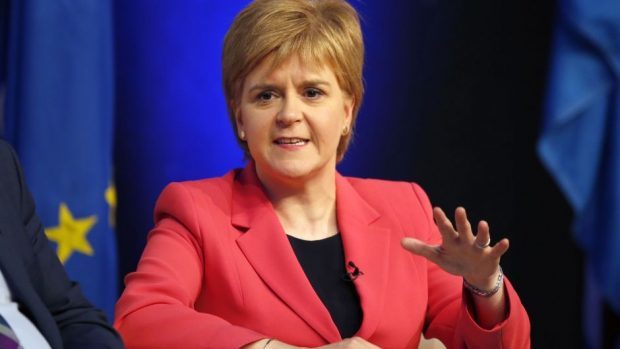Scotland would preserve its place in the EU single market by joining the European Free Trade Association, according to a plan put forward by Nicola Sturgeon.
The First Minister said the country could join Norway and others in the regional trade organisation while maintaining an open border with England.
But she also insisted independence was “still on the table”.
She was laying out her “Scotland’s Place in Europe” plans at Bute House after the UK-wide decision to leave the EU.
She said her proposals for protecting Scotland’s place in Europe are a “serious and genuine attempt” to “unify the country around a clear plan”.
The options outlined in the paper – Scotland’s Place in Europe – represent a “significant compromise” on the part of the Scottish Government, she said.
Scotland backed Remain with a 62% majority, but faces losing its EU status on the back of Leave votes elsewhere in the UK.
EFTA members Iceland, Lichtenstein and Norway have access to the single market by agreement with the EU, but have no say on the rules.
That European Economic Area (EEA) agreement, which effectively extends the single market’s borders to include EFTA countries, allows tariff-free access to the trading bloc, as well as the free movement of people.
Ms Sturgeon, who said the option of independence is “still on the table”, said the best option for Scotland and the EU would be to retain full membership of the EU.
But she said this morning: “The Tories seem intent on placing a higher priority on cutting immigration than on anything else – the economy, jobs and living standards all lag behind on their list of priorities.
“As a result, the second strand of this paper proposes ways in which Scotland could stay in the single market – through EFTA and the EEA – even if the rest of the UK chooses to leave.
“The paper does not shy away from the challenges associated with such an option.”
The Scottish Government has proposed the UK as a whole should stay in the single market by remaining “a party to the European Economic Area Agreement” and staying in the customs union.
Ms Sturgeon said: “I accept that there is a mandate in England and Wales to take the UK out of the EU.
“However, I do not accept that there is a mandate to take any part of the UK out of the single market.
“It would make no economic sense whatsoever for the UK to leave the single market. It would be entirely democratically justifiable for the UK to remain within it.
“So, the Scottish Government will continue to argue – and build common cause with others of like mind – for continued UK membership of the single market.
“However, I reluctantly accept that as things stand – given the rhetoric of the Conservative government – that seems an unlikely outcome.”
The “second strand” of the paper proposes ways in which Scotland could stay in the single market – through European Free Trade Association (EFTA) and the European Economic Area (EEA) – even if the rest of the UK chooses to leave.
Ms Sturgeon insisted this option does not prioritise membership of the EU single market over continued free trade across the UK.
“It would safeguard both,” she said.
“Talk of a hard border for Scotland has always rung hollow from a UK Government that says no such hard border will be required between a post-Brexit UK and the Republic of Ireland, a continuing member of the EU,” she said.
